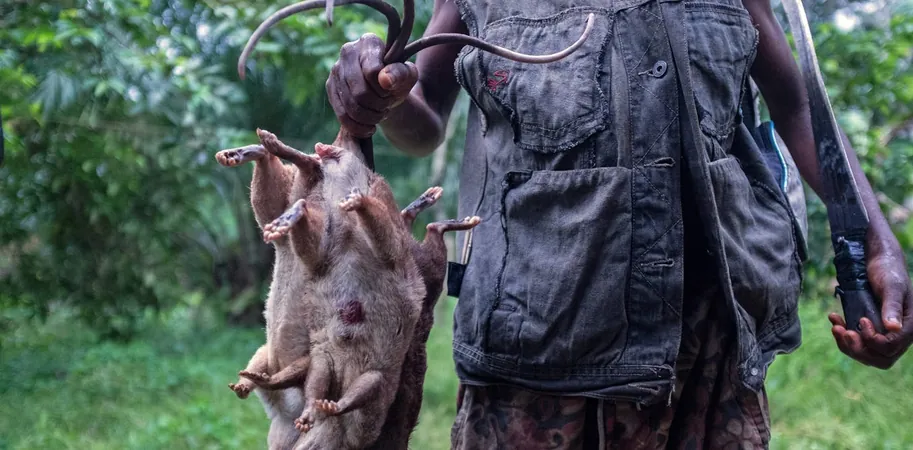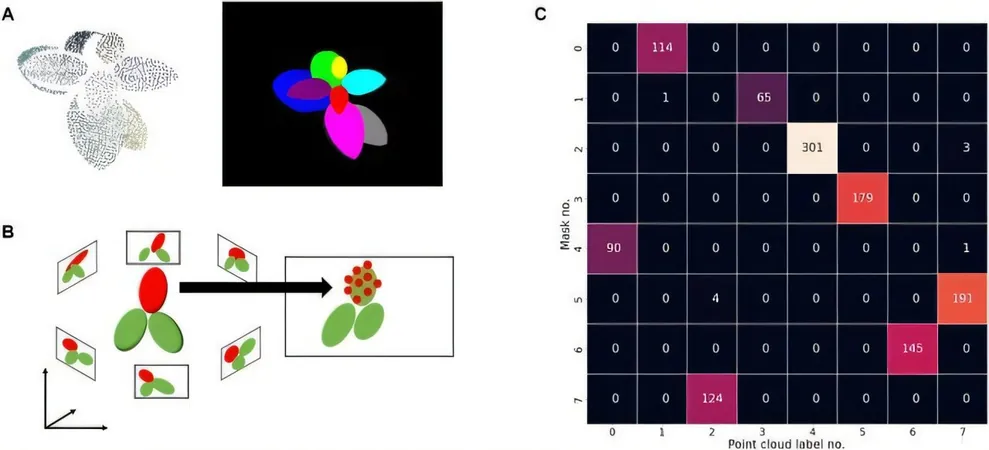
Time to Act: Transforming Wild Meat Markets is Crucial to Halting Mpox Spread!
2024-11-05
Author: Charlotte
In various corners of the globe, particularly in Africa and Asia, wild animals such as monkeys, rats, and squirrels are often hunted and served as food. This practice, while culturally significant and a crucial nutritional component for many communities, comes with severe public health risks.
In Africa alone, wild meat harvesting ranges from an estimated 1 million to 5 million metric tonnes annually, overshadowing the continent's livestock production, which totals around 14 million metric tonnes each year. The growing consumption of wild meat raises alarm bells regarding possible zoonotic diseases—pathogens that jump from animals to humans—especially considering the unsanitary conditions prevalent in informal markets where this meat is sold.
Public health experts have long warned about these health implications. The tragic echoes of the 2014 Ebola outbreak in the Democratic Republic of Congo are still fresh, wherein the virus made a deadly leap from infected forest animals, like fruit bats, to humans. Now, with over 1,100 reported deaths from mpox in Africa and 48,000 cases documented since the onset of 2024, it’s clear that we must not only focus on human-to-human transmission but also address the disease’s root causes linked to wild meat consumption.
The Urgency for Change
The informal ‘wet’ markets where wild meat is sold often lack proper regulations and hygiene practices, creating prime opportunities for diseases to spread. To tackle this formidable public health challenge, researchers have urged a collaborative approach called One Health—uniting veterinary, public health, wildlife management, and community efforts to devise comprehensive solutions.
The Three-Legged Approach
Research indicates that improving food safety in these difficult-to-regulate markets hinges on advancements in three critical areas:
1. Capacity Building:
Training local workers and consumers about safe practices can significantly mitigate risks. In areas like the Democratic Republic of Congo, overcoming distrust in government health messages is essential. Communities that are well-informed about the dangers of bushmeat can be guided towards safer hunting and consumption without entirely disavowing these practices.
2. Motivation and Incentives:
For many in low-income areas, affordability takes precedence over food safety. Instead of prohibitive bans, governments could focus on promoting economic, social, and moral incentives. For instance, showcasing potential financial benefits for vendors who maintain safety standards could encourage a broader acceptance of improved practices.
3. Enabling Policies and Regulations:
The absence of food safety regulations in informal markets can exacerbate the spread of diseases. Recognizing vendors who adopt exemplary safety measures could serve as a motivational tool for others in the community. Furthermore, actively promoting alternative protein sources could alleviate burdens on wild meat consumption while ensuring that communities still receive the nutrition they need.
Looking Ahead
As nations devise strategies to combat the mpox epidemic, these considerations must guide their actions. The message is clear: Transforming wild meat markets into safer environments is not merely beneficial; it is imperative for public health. If we are to prevent the next wave of zoonotic diseases, we must act decisively and collaboratively to redesign how we interact with our food sources.
Will global authorities rise to the occasion before it's too late?









 Brasil (PT)
Brasil (PT)
 Canada (EN)
Canada (EN)
 Chile (ES)
Chile (ES)
 España (ES)
España (ES)
 France (FR)
France (FR)
 Hong Kong (EN)
Hong Kong (EN)
 Italia (IT)
Italia (IT)
 日本 (JA)
日本 (JA)
 Magyarország (HU)
Magyarország (HU)
 Norge (NO)
Norge (NO)
 Polska (PL)
Polska (PL)
 Schweiz (DE)
Schweiz (DE)
 Singapore (EN)
Singapore (EN)
 Sverige (SV)
Sverige (SV)
 Suomi (FI)
Suomi (FI)
 Türkiye (TR)
Türkiye (TR)